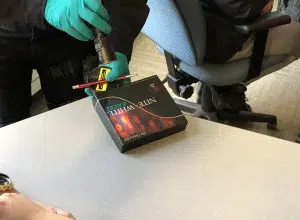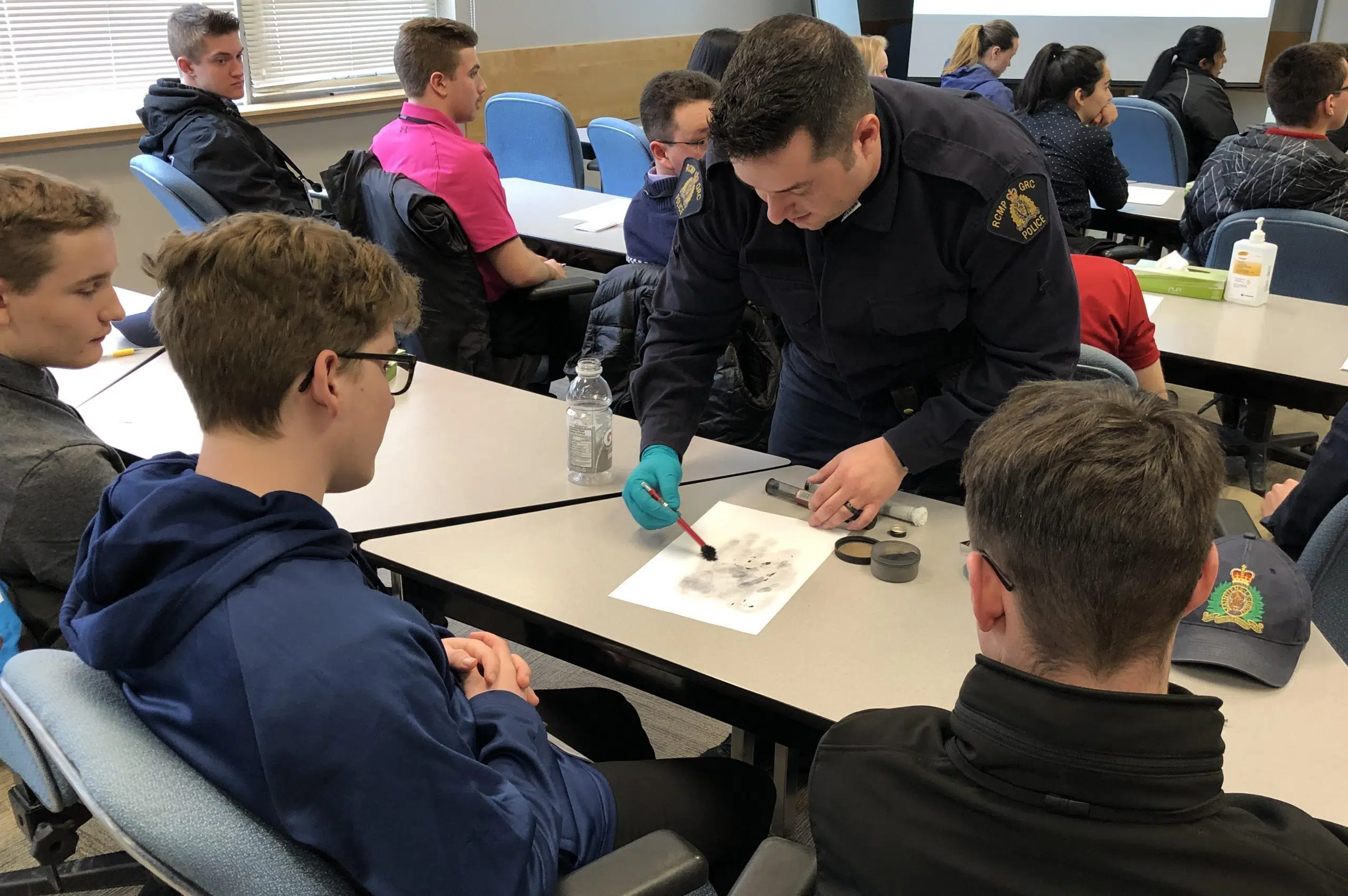Some high school students from across Canada are spending the week at RCMP Depot Division getting a lesson on what it takes to become a Mountie.
A group of about 30 Grade 12 students with an interest in a law enforcement career were selected from more than 3,000 applicants and invited to the National Youth Engagement Week program.
Cpl. Denis Simard, the program supervisor, explained the program has been running for three years and provides a glimpse of what cadet training includes.
“We give them a drill class just so they get an idea of what it takes when you come here and you spend six months going to drill class every week,” said Simard.
Some of the students are thinking of following in the footsteps of family members. Mekenzie VanBynen of London, Ont., said her cousin is an RCMP officer and her mother went through schooling but was injured before making it onto the force.
 VanBynen is really into science and enjoyed Wednesday’s class by the forensic identification unit.
VanBynen is really into science and enjoyed Wednesday’s class by the forensic identification unit.
“I was very interested in the fact that they could lift fingerprints so easily off of certain materials,” VanBynen said after a classroom fingerprint demonstration.
Highlights for Ottawa’s Jacob Kelk were the shooting and driving simulations. He also spent an hour picking the brain of another cadet while bonding during a dodgeball game.
“Having that opportunity to really ask all my questions (and) understand his experience was something that was incredibly beneficial to me,” Kelk said.
Kelk loves to volunteer, working with First Nations people and people with mental health disabilities back home. He said his passion for helping others has only grown during his time in Regina.
“That’s kind of what I want to do as an officer, really be there for people on the worst day of their lives and try to make it better and be compassionate towards them,” Kelk said.
Simard said when looking for new recruits, the RCMP is looking for a specific kind of person. While the force can teach cadets how to shoot, find fingerprints and solve crimes, it starts with one thing that can’t be taught.
“You have to want to be involved in a community. That to me is the basics of being a police officer,” said Simard. “Wanting to help is something that not everybody does, or everybody has in them.”
Simard said seeing high school students who have that same mentality means the future is in good hands.
“It means that when my turn’s over, there will be somebody else to pick it up and continue to do that work that we all get called for,” Simard said.







